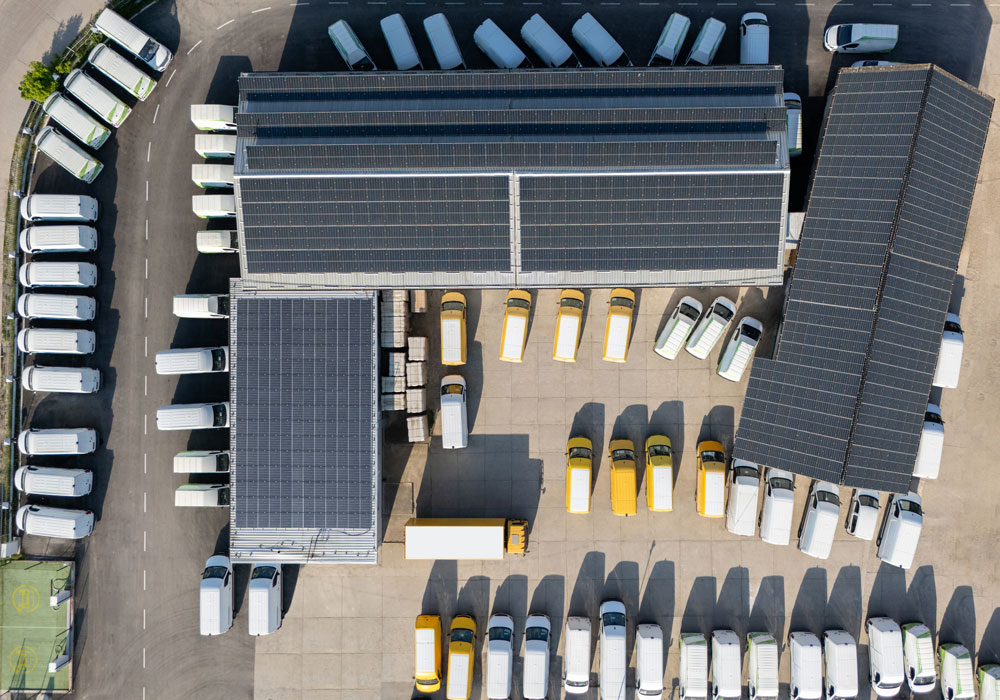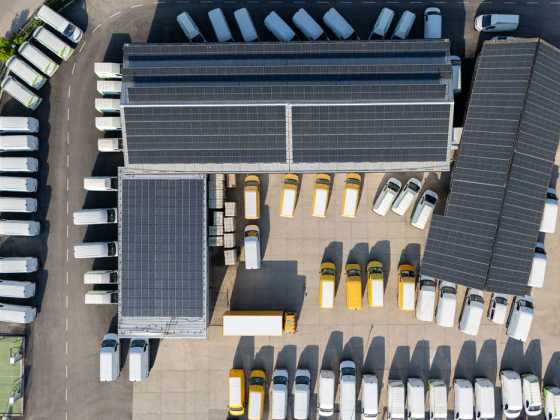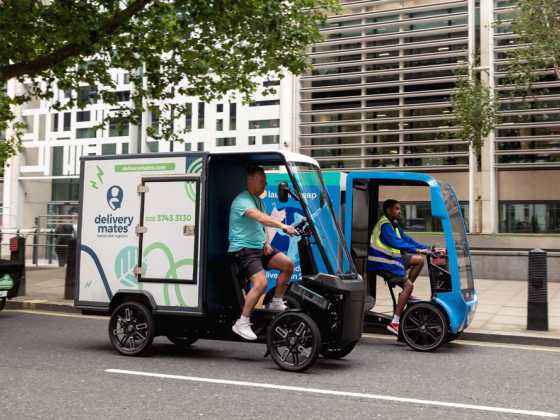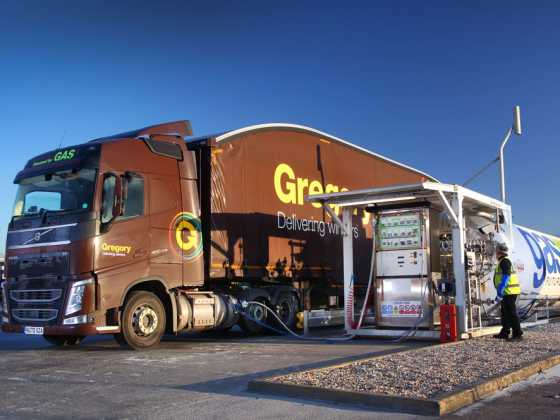Funding help for EVs and depot charging

The government has extended its Plug-in Van and Truck Grant and launched a new funding scheme for depot charging. We explore how these grants can be used to ease the financial burden of moving to electric vehicles
The government has confirmed an extension to its Plug-in Van and Truck Grant scheme, giving fleet operators greater clarity and confidence as they plan the transition to cleaner vehicles.
Announced by Future of Roads Minister Lilian Greenwood, the grant will now run until at least 2027, ensuring continued financial support for businesses shifting to zero-emission commercial vehicles.
Launched in 2012 for vans and expanded to include trucks in 2016, the grant has become a central part of the UK’s strategy to decarbonise road transport. It supports the government’s 2035 mandate that all new cars and vans sold must produce zero tailpipe emissions, and provides a discount on the upfront cost of eligible electric vehicles.
Currently, the grant offers up to £2,500 for small vans, £5,000 for large vans, £16,000 for small trucks, and £25,000 for large trucks. While the precise funding levels for the 2026–2027 financial year have not yet been announced, the extension alone has been welcomed across the commercial transport sector.
Announcing the extension, Minister Greenwood stated: “Every EV on our roads means healthier communities and new economic opportunities across the country, which is why grants like these are crucial to both accelerating that transition and building a resilient, competitive economy.”
More certainty for fleets
For fleet operators – from nationwide logistics firms to independent tradespeople – the extended grant period delivers more long-term confidence to plan capital investments and fleet upgrades. With procurement cycles for commercial vehicles often extending well beyond a single year, this decision supports more sustainable business planning.
John Boumphrey, UK country manager at Amazon, underscored the importance of sustained government backing: “We welcome the government’s continued commitment to supporting the electrification of commercial fleets. Decarbonising the transportation network is a critical step to enable us to achieve our goal to reach net-zero carbon emissions across our operations by 2040.”
Smaller operators and tradespeople also stand to benefit significantly. Jambu Palaniappan, CEO of Checkatrade, noted: “This news is a big boost for tradespeople across the UK. Lower running costs, freedom from charges like ULEZ, and the ability to plan ahead with confidence – it all adds up to real, practical support. For many Checkatrade members, with help to switch to electric vans, they can keep moving, win more work, and build a future that’s both cost-effective and sustainable.”
Eligible vehicles
The Plug-in Grant scheme itself is available for a range of vehicle types, subject to eligibility criteria. Small vans under 2,500kg are eligible for up to £2,500 off the purchase price if they emit less than 50g of CO2 per kilometre and can travel at least 60 miles with zero emissions. Larger vans between 2,500kg and 4,250kg qualify for up to £5,000 under the same emission and range thresholds.
For trucks, the grant scales up; small trucks between 4,250kg and 12,000kg – classified as N2 vehicles – can receive up to £16,000, provided they offer at least 50 per cent lower CO2 emissions than a Euro VI diesel equivalent and can travel a minimum of 60 zero-emission miles. Large trucks over 12,000kg (N3 vehicles) are eligible for up to £25,000 under similar conditions.
Only part of the solution
Extending the plug-in van and truck grant is only part of the solution. Logistics UK, one of the country’s largest business groups, welcomed the move but stressed the urgency of expanding EV infrastructure to meet growing commercial needs.
Lamech Soloman, head of decarbonisation policy at Logistics UK, commented: “The Plug-in Van and Truck Grant is fundamental to the continued uptake of electric LCVs and HGVs and extending the scheme provides clarity for logistics operators looking to electrify their fleets.
“However, commercial and operational viability will always be the main driver for transport operators and alongside the cost of buying new vehicles, one of the main barriers they still face to fleet electrification is the lack of charging infrastructure.”
He added that a reliable, mixed model of depot and en route charging is essential to making EV operations viable, particularly for long-haul and regional fleets. Logistics UK is calling for urgent investment in grid connections at freight hubs and depots, and for low-carbon fuels such as HVO and biomethane to be recognised as part of the
broader decarbonisation mix. The group is also pressing for a multi-year settlement for the grant, to reflect the long lead times and planning required for commercial vehicle procurement.
Depot charging
The government is also offering financial support to help fleet operators install depot-based charging infrastructure. The Depot Charging Scheme is designed to facilitate the wider adoption of battery electric HGVs, vans and coaches by covering a significant portion of the associated infrastructure costs.
Under the scheme, organisations can claim up to 75 per cent of the chargepoint and civil engineering costs, with a maximum grant of £1 million available per organisation across all sites. While there’s no cap on the number of depot locations you can apply for, each organisation is limited to one application.
The scheme is open to a wide range of applicants, including public and private sector fleets, local authorities, and non-profit organisations across England, Scotland, Wales, and Northern Ireland.
To be eligible, applicants must either own the depot site or have the landlord’s permission for installation, and must also own, lease, or have placed an order for at least one battery electric van, HGV or coach. The grant can be used to fund the purchase of any type or speed of chargepoint that meets the needs of the fleet, as well as the labour and material costs required for installation – including civil and electrical engineering work.
The application window closes on 28 November 2025, or sooner if funding is fully allocated, and all works must be completed by 31 March 2026.
As the 2035 zero-emission deadline draws closer, the grant extension for electric vans and trucks, along with the new deport charging scheme, will continue to support the commercial transport sector through its transition and bring more stability to a rapidly evolving landscape.






